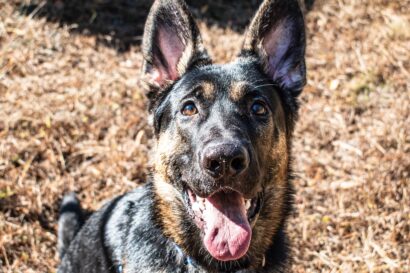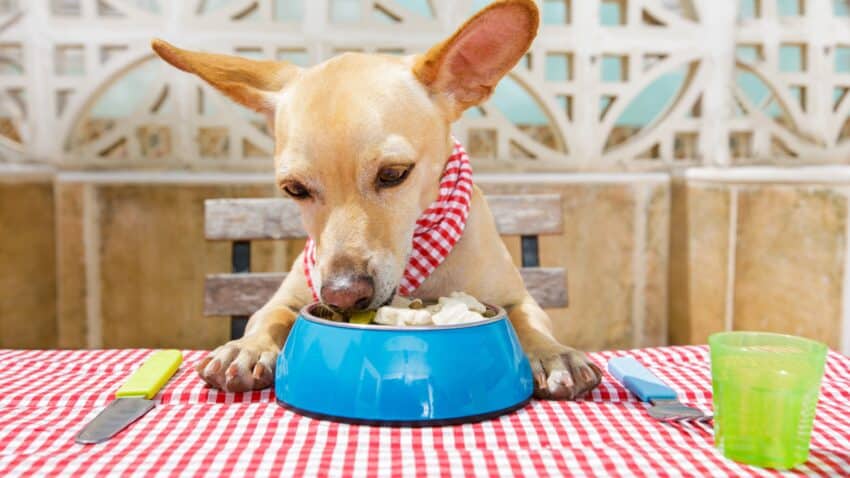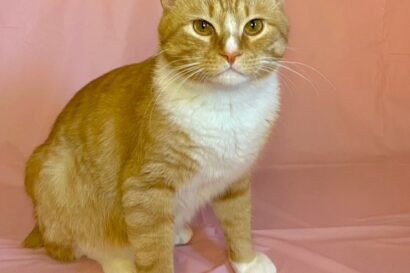

As we gather with friends and family to give thanks, we provide some tips to help you keep your pet healthy and happy this holiday weekend. If you have a pet at home and you have a lot of visitors coming over, make sure that your pet has a space to go to spend time by themselves. They do get very overwhelmed when they have lots of visitors, and remember, that is their home. We want to make sure that they feel comfortable. If you are going to be traveling, make sure that you take along plenty of enrichment and things to keep them busy. Give them lots of potty breaks and you can always consider Adaptil spray or pheromone spray to help calm them down during an extended car ride. Also, always remember to keep that microchip and pet id up to date just in case…
It can be very tempting during the holidays to give your pet human food, especially when they are giving you puppy eyes. It’s important to remember that they don’t need human food. Some foods to avoid on Thanksgiving are turkey fat and any turkey bones, items that contain garlic or onions, baked products, especially if they have chocolate or xylitol in them, and then grapes, raisins, and macadamia nuts. Here’s why it’s important to avoid these foods.
1. TURKEY SKIN AND UNDERCOOKED MEAT
Feeding pets small bits of white meat, the leanest type of meat, is fine. However, don’t offer your dog or cat any turkey skin.
You may not realize how it has been seasoned, and that may be a fatal mistake. If the turkey has spent hours being rubbed and basted in things like onion, sage and garlic, the skin has been soaking up the very ingredients that are most toxic to dogs and cats. In addition, salmonella is a real threat if you toss your pet a piece of raw or undercooked meat. Just don’t do it.
2. STUFFING AND GRAVY
The ingredients that go into gravies and stuffing can be a cornucopia of toxicity for dogs and cats. How do you make yours?
If you use mushrooms, onions, sage, leeks, chives, garlic, scallions, pepper or a variety of other ingredients, don’t even think about giving stuffing or gravy to your dogs and cats.
Many of these ingredients are downright toxic to their little systems, while others won’t kill them but will make them very uncomfortable if eaten to excess. Sage in particular — a seasoning we use quite a bit at Thanksgiving — gives cats an upset tummy and messes with their central nervous systems.
3. CRANBERRY SAUCE
Cranberries themselves are fine for pets. Indeed, you’ll find them as ingredients in some commercial pet foods. Cranberries fight urinary tract infections and contain a number of healthy vitamins. When cranberries are turned into a holiday sauce, however, at lot of that goodness goes out the window.
Canned cranberry sauces contain huge amounts of sugar or high fructose corn syrup. Look at the label if that surprises you. Even homemade sauces go heavy on the sugar. Homemade versions also contain ingredients you might not know about that are bad for animals, such as raisins and certain nuts.
The bottom line here is be careful about any cranberry sauce you give to your pets.
4. GREEN BEAN CASSEROLE
Regular green beans make a nice, healthy snack for Rover or Mr. Tinkles. It’s when they go into a flavorful Thanksgiving casserole that the problems begin. Other common ingredients for green bean casserole include mushroom soup and a fried onion topping. Dogs and cats can’t have those ingredients, so no spoonfuls of casserole, please.
5. TURKEY BONES
This one should go without saying, but it’s good to be reminded every year. Never feed cooked bones to your pets. At best, they can cause vomiting. At worst, they splinter easily, injuring or even puncture the stomach and intestines.
6. BREAD DOUGH AND CAKE BATTER
Remember what happens to dough when it gets warm? It rises. And you don’t want that happening inside the stomach of a dog or cat. There will be vomiting and painful abdominal bloating. Bread dough and cake batter also often contain raw eggs, which can carry salmonella. Neither pets nor humans should eat these things in their raw state.
Yes, cookie dough batter, I’m talking to you, too. Sorry.
7. MASHED POTATOES
Potatoes all by themselves are fine in moderation. What you need to watch out for are all the ingredients that go into the mashed version. If your pet is lactose intolerant, the milk and butter you’re adding can give your furry friend diarrhea and an upset tummy.
In addition, watch out for flavorings. Any added garlic or onion, even in powder form, is toxic to animals.
8. FRUIT SALADS
Be careful when friends and family bring over their scrumptious Waldorf salad — or any salad with fruits. If there are grapes or raisins in the mix, your pet can’t have any. Grapes can cause serious and sometimes fatal kidney problems for dogs. Watch for the nuts, too.
9. WALNUTS AND MACADAMIA NUTS
Many nuts are fine for dogs in moderation, but walnuts and macadamia nuts decidedly are not. Macadamia nut toxicosis can cause neurological symptoms, vomiting and lethargy. Walnuts can cause gastric problems and may contain mycotoxins that cause seizures and neurological symptoms.
Because of their fatty content, even other types of nuts if fed too often can cause problems like pancreatitis over time. Be careful and judicious about nuts.
10. PUMPKIN AND SWEET POTATO PIE
Pumpkin and sweet potatoes are just fine for pets, especially dogs. In fact, veterinarians often recommend feeding raw pumpkin to settle a nervous digestive system. Sweet potatoes turn out to be better for animals — and us — than other potatoes because of their lower glycemic index. However, the holiday pies, casseroles and yam dishes made with these ingredients are a different story.
Most recipes for pumpkin pie and sweet potato pie call for nutmeg and cinnamon. While humans love nutmeg for all sorts of reasons, it’s dangerous for dogs. Nutmeg contains a toxin called myristicin, which in large amounts can cause seizures and problems with the central nervous system.
Cinnamon — if ingested in large powdered amounts or via an essential oil — can cause diarrhea, liver disease, vomiting and low blood sugar. Dogs that eat too much can even die, so keep those pies out of reach and don’t feed forkfuls to your best friend. In particular, keep the ingredient bottles well away from pets, too.
Thanksgiving is a day for fun, friends and family. If you want to include your dog or cat in the food extravaganza, do it right:
- Offer up raw carrots, broccoli or a bit of well-cooked white meat if you must — but not the indulgent foods you’re feasting upon.
- Tell your visiting guests — especially the kids — not to feed your pets from their plates. Explain why.
- Feed pets only reasonable amounts of any safe people-food treats.
- Be sure you know what ingredients are in the foods you’re letting your pets eat.
Other common toxins around the holidays are plants. An example of some plants are poinsettias, holly berries, mistletoe, acorns, lilies, and azaleas. These are common plants that people get in arrangements and it’s important that you know which plants you have in your house. They can be potentially toxic and fatal to your pets. Make sure that if you have the plants in your house, they’re completely out of reach or better yet keep them out of your house entirely.
Do right by your furry companions so they’ll be around to enjoy many future Thanksgivings by your side.
If you suspect that your pet has ingested something harmful, call the 24/7 ASPCA Animal Poison Control Center Phone Number: (888) 426-4435

